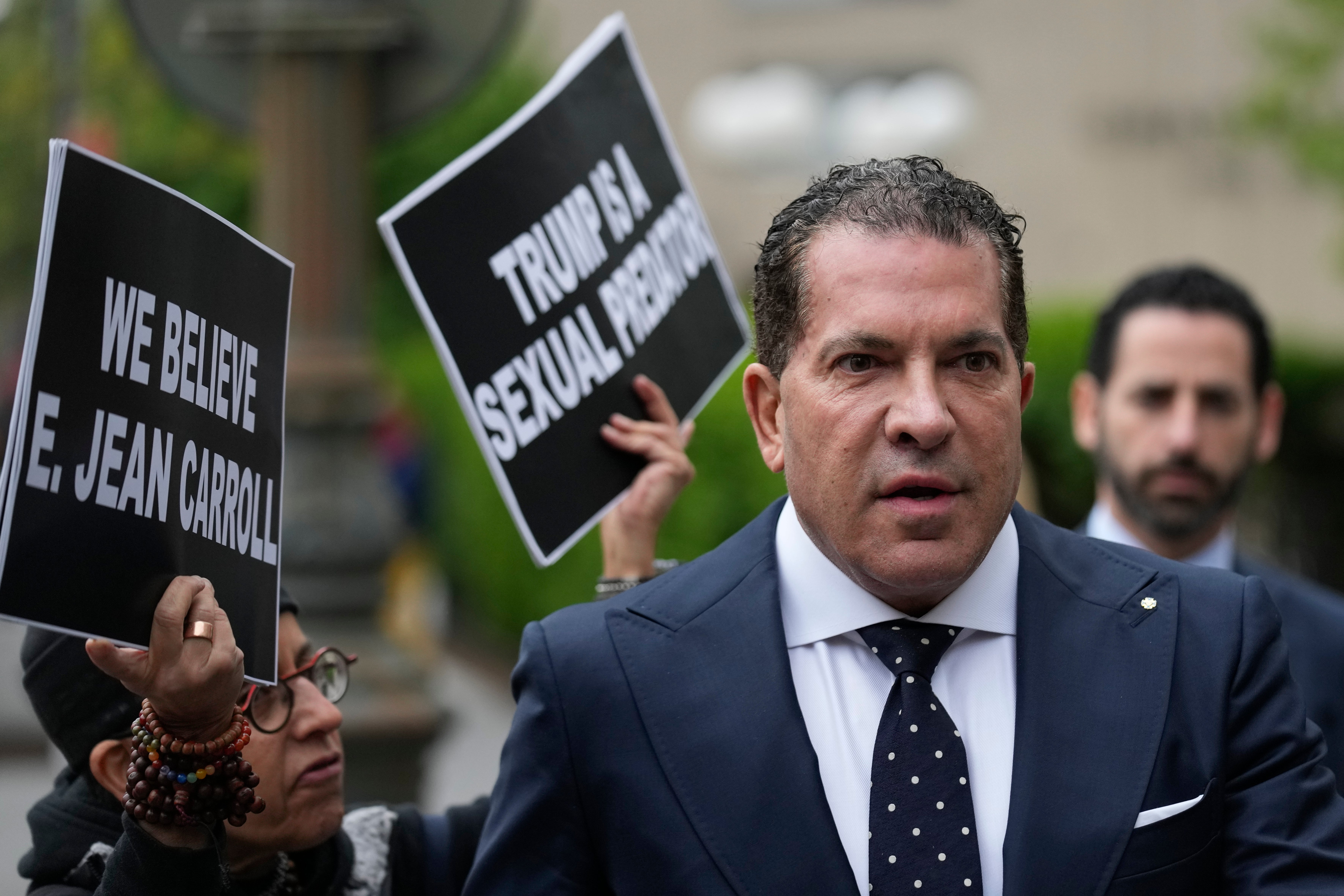Trump lawyer seeks mistrial in rape case, citing judge bias
The lawyer for former President Donald Trump wants a mistrial in his client's rape case, saying the judge overseeing the proceedings has ruled in a biased manner against him

Your support helps us to tell the story
This election is still a dead heat, according to most polls. In a fight with such wafer-thin margins, we need reporters on the ground talking to the people Trump and Harris are courting. Your support allows us to keep sending journalists to the story.
The Independent is trusted by 27 million Americans from across the entire political spectrum every month. Unlike many other quality news outlets, we choose not to lock you out of our reporting and analysis with paywalls. But quality journalism must still be paid for.
Help us keep bring these critical stories to light. Your support makes all the difference.
Former President Donald Trump's attorney requested a mistrial Monday in his client’s rape case, saying the judge overseeing the civil proceedings in federal court has ruled in a biased manner against Trump.
Attorney Joe Tacopina cited “pervasive unfair and prejudicial rulings” by Judge Lewis A. Kaplan as his basis for the mistrial request, made in a letter to the judge.
Since mistrials, though sometimes frequently requested at trials, are rarely granted, Tacopina was more likely hoping the judge would grant a version of his alternative requests.
In those, Tacopina asked that Kaplan correct the record for any rulings that mischaracterized the evidence or permit Tacopina more latitude in questioning E. Jean Carroll, a columnist who sued Trump in November under a New York state law letting sexual assault victims temporarily sue others for attacks that happened even decades ago.
Carroll, 79, testified at a trial that began last week that Trump raped her in the dressing room of a Bergdorf Goodman department store in midtown Manhattan, most likely in spring 1996. She said a chance encounter brought the pair together in an episode that was fun and flirtatious until Trump became violent in the dressing room.
Trump, 76, has long denied that a rape happened, that he was at the store with Carroll or that he even knew her beyond fleeting moments when pictures were taken of them in group settings in other years.
Amid a flurry of public denials and insults from Trump that prompted Carroll to add a defamation claim to the lawsuit, Trump has also insisted that Carroll was motivated by political reasons and a desire to sell copies of the 2019 memoir where she first publicly revealed her rape claims while Trump was still president.
Carroll has testified that she would have kept her accusation secret forever if not for the #MeToo movement, which gained prominence in 2017.
Carroll was expected to testify Monday for a third day and for a second day of cross-examination by Tacopina. Trump has not attended the trial, which is expected to last through the week.
During testimony on Thursday, the last day the trial occurred, Carroll grew frustrated as Tacopina pressed her on how she claims she reacted to an attack from his client.
“You can’t beat up on me because I didn’t scream,” Carroll forcefully told Tacopina. She had explained in earlier testimony that she was “not a screamer — I’m a fighter.”
She said if she were lying about the assault, she would’ve told people she had screamed because “more people would have believed me.”
But, she emphasized, “I don’t need an excuse for not screaming.”
In his mistrial request Monday, Tacopina complained that the judge shut down his questioning when he pushed Carroll to explain why she did not scream, why she didn't tell police or attempt afterward to retrieve footage from video cameras at the store's doors to prove that she and Trump were there together.
The Associated Press typically does not name people who say they have been sexually assaulted unless they come forward publicly, as Carroll has done.
Subscribe to Independent Premium to bookmark this article
Want to bookmark your favourite articles and stories to read or reference later? Start your Independent Premium subscription today.